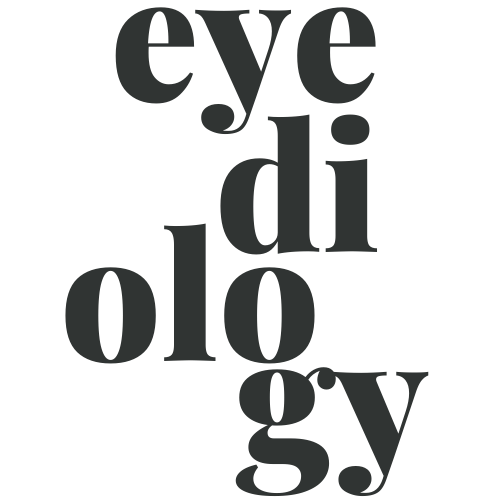Eyecare Myths Explained
Myths, Half Truths and Misinformation!…
There are many myths in the modern world in regards to eye health and maintenance. Many of these seem logical but actually have no true basis in reality. However, there are also many that can be considered true under certain circumstances.
Myth 1: If you eat the right foods your vision will improve
The truth is that while this myth can actually be true under one specific type of circumstance, the reality is that unless there is a lack of a specific dietary substance there will be no difference made in vision by eating more of a given substance.
The most common variation of this myth involves eating carrots. In the earlier days this was considered a cure for poor vision because rabbits ate them and they were thought to have excellent eyesight.
A modern version of the myth focuses on vitamin A. There are even websites online currently that continue to spread the erroneous belief that eating more vitamin A bearing food sources, such as carrots, will improve vision. Vitamin A is important for night vision. If there is a deficiency in this vitamin, consuming more of it will actively improve an individual’s vision in dim lighting. However, once the deficiency is removed and normal capacity is restored, ingesting further amounts of this mineral will not improve eyesight.
On the contrary, over consumption of Vitamin A will cause more harm than good. The truth about this particular myth is that the only way eating certain things will improve vision is if there has been a deficiency in vitamin intake. Otherwise, all proper nutrition provides is continued good health.
There are certain supplements/vitamins which have been formulated to improve eye health. Research has found certain formulations to be beneficial especially when someone lacks the correct nutritional intake and is at risk of developing certain eye health problems. Our optometrist is the best person to advise whether these are appropriate for you.
Myth 2: If you sit too close to the television you will ruin your eyes
The original basis for this myth were the television sets first introduced into homes. During the initial era of home televisions, the cathode ray tube provided ample opportunity to irradiate and damage the eyes. However, there were no real proven instances of the eyes being damaged in this manner. Modern televisions don’t even have the radiation effect.
The truth is that no matter how long you stare at a television from any distance it will not matter. The muscles of the eye will grow tired and strained after extensive intent focus on a single object but this isn’t injury, it is simply exhaustion. A little rest will be the only cure needed to fix them.
Myth 3: Reading too much will harm your eyes
There are many reasons as to why this myth began. The fact that many people who read frequently tend to wear glasses contributes to it. The eyestrain, soreness, and blurred vision evident once someone has read for too long, is another contributing factor.
The truth is that this myth is just that. There is no degradation of vision simply by reading frequently. This is also true if the individual reads in dim lighting, or stares at a computer screen for hours on end. As with staring at a television screen the worst thing that can happen from reading too often is headaches and eyestrain. There is no possibility of damaging the eyes from overuse as they are intended to be used frequently and for long duration. Certain types of lighting and colour contrasts can cause eyestrain to occur with greater swiftness but otherwise there are no negative consequences.
Myth 4: If You Cross Your Eyes Too Much They Will Stick That Way
This myth is one crafted from blatant misinformation. The truth is that is an individual who can cross their eyes easily will find that they are actually less likely to develop the possibility of permanent crossed eyes. The true condition of having crossed eyes is a muscular issue of the eye. If this issue goes unchecked eventually the vision in that eye may not develop properly. The only methods for correcting this are eye exercises in minor cases and corrective lenses or even surgery in more serious ones.
Myth 5: Wearing the wrong prescription for glasses can ruin your vision
This is a popular misconception in adults. In truth there is no permanent damage to adult eyes by wearing glasses that are far more potent or weaker than your own. Even an individual with normal vision will find that wearing someone’s glasses will not damage their eyes. HOWEVER this is not advisable as the human eye can become strained with the wrong prescription and can lead to minor or severe headaches. In adults there will be no long term damage from wearing the wrong prescription outside of simply not being able to see properly. HOWEVER in children this is not the case and wearing the wrong prescription can damage vision.
Myth 6: If you go to bed with wet hair you will go blind
This bizarre myth is one of the few that have absolutely no real basis in fact. While other myths at least have eye strain as a back up source for misinformation there seems to be no actual reality behind this belief.
Wet human hair will not cause anyone to go blind under any normal circumstances. This myth is one that has long been believed to have begun by mothers who desired to keep a child’s bedding dry. It seems to have been primarily used in a manner similar to frightening small children with tales of the boogey man to keep them from acting out.
Myth 7: Wearing glasses will make your natural vision weaker
This myth shares similar origins with the myth that wearing the wrong prescription will cause eye damage. The truth is that corrective lenses are solely beneficial. The only way in which wearing glasses can injure the eyes is if they are broken while wearing them and the lens material penetrates the eyes.
Normal wear does not weaken your eyes. Any belief that the eyes have weakened is due to the fact that when people first start wearing glasses they will transcend their blurry world and will find themselves in a new reality of clear crisp vision.
After they have worn corrective lenses for a time they may try to go without them and find that they believe they see worse than ever. Unless significant time has passed or there was a biological reason already in evidence their vision is not likely to have changed. These misinformed individuals simply have forgotten how poor their vision was in the first place.




